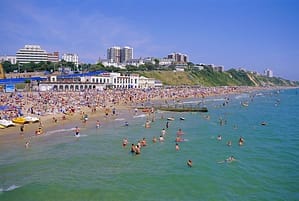UK GDP grew by 0.2% in July after a 0.6% fall in June, figures out today showed.
Services were the main driver with motor sales and repairs and big sporting events playing a major part.
Both the construction and production sector fell while demand for electricity down as consumers respond to high prices
Danni Hewson, AJ Bell financial analyst comments on July’s GDP figures: “July boasted record temperatures and as lots of people flocked to the beach, the park or outdoor pools to enjoy a little respite from the heat, many service businesses benefited. Ice creams were consumed, sun cream was slathered on and beer gardens overflowed. Sporting events distracted people from their personal budgeting headaches and the incredible success of the Women’s England team bathed the country in a warm glow.
“But even in celebration there was an undertone of caution and July’s rather anaemic growth came in below expectations, a factor which will add to concerns that the UK is slow marching towards recession. Despite the package of support for households, which has just been announced by the government, the cost of living crisis hasn’t magically disappeared. Energy costs are just one part of the equation – food prices, fuel prices and pretty much every single service we use has gone up and, even if inflation doesn’t peak at those eyewatering levels we’d been warned of, budgets are still very tight.
“It’s not surprising that the ONS flags up anecdotal evidence that demand for electricity fell in July. Businesses and consumers have been making changes, cutting back, altering habits, preparing for those long winter days. High prices for materials like concrete and bricks continue to be a huge issue for the construction sector and it is interesting that repair work and maintenance have dragged the sector down. People will try and make do if they’re worried about cash, hoping that putting repairs off until tomorrow will result in lower quotes as inflation cools.
“And finding staff to do the jobs that need doing is still a huge concern across the board. How does a business take advantage of surges in demand if they don’t have enough workers? There are signs that the jobs market is relaxing and evidence that some businesses are now actively letting workers go as they try and create some kind of cushion going into the winter months.
“Will the energy price freeze be enough to keep the economy chugging forward, or has intervention come too late to settle nerves? Will consumers relax their tight hold on the purse strings enough now they’re no longer faced with the spectre of continually rising energy bills?
“And how will the additional bank holiday play into the country’s economic story? It’s estimated such events cost the country over £2bn – a cost often offset by additional spend on hospitality or retail. This bank holiday will be different, however, offering a chance for the country to pay its respects to a monarch who gave so much to UK PLC. The Queen captured hearts and minds around the world and her passing is global news, showcasing the country, its people and its opportunities.”






Leave a Comment